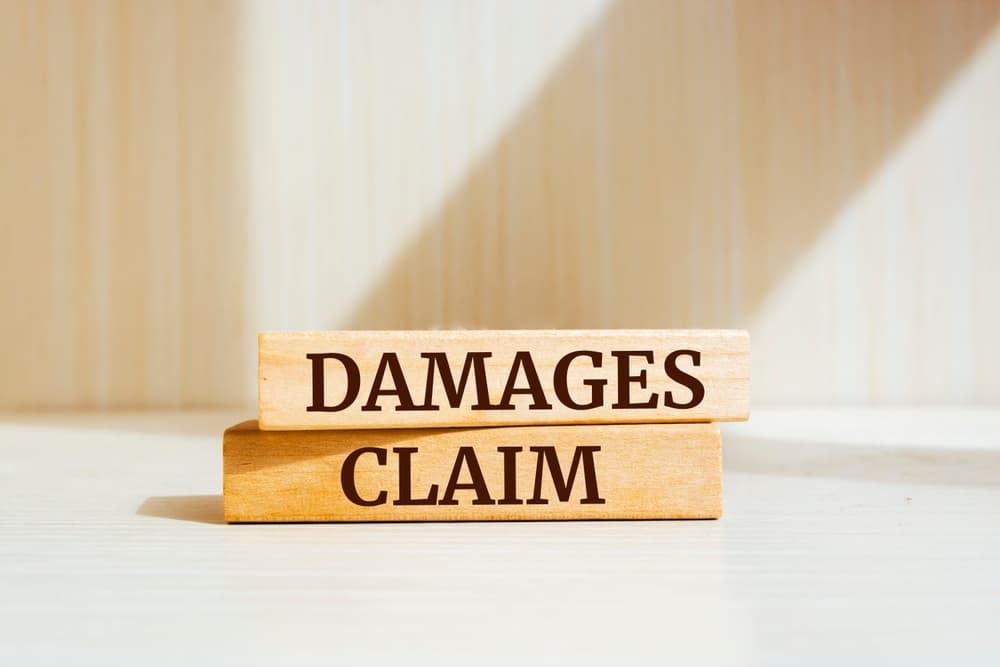Trucking accidents frequently result from negligent driving maneuvers and road rule violations by truck drivers. However, shipping companies may also be responsible for these accidents, especially when workers improperly load or unload cargo or the company provides inadequate training to its drivers.
If you suffered injuries in a recent trucking accident, a skilled truck accident attorney in your area can aggressively advocate for you during every stage of the proceedings. Your truck accident lawyer can file a claim on your behalf, negotiate with the insurance company, and represent you in various legal proceedings to secure the best possible result in your case.
How Do Shipping Companies Cause Accidents?
A shipping company can be responsible for a truck accident under several circumstances, especially when their actions or negligence contribute to the incident. Here are some key scenarios whereby a shipping company may be found liable:
- Negligent Hiring and Training — If a shipping company fails to properly vet or train its drivers, it can be held responsible for accidents those drivers cause. For instance, the company may be liable if a driver has a history of traffic violations or accidents and the company hires them without conducting a thorough background check. Similarly, if drivers are not adequately trained in safety protocols and handling the vehicle, the company can be held accountable for resulting accidents.
- Failure to Maintain Vehicles — Shipping companies are required to keep their fleet in good working condition. This involves regular inspections and maintenance of the trucks. If a company neglects this duty and a mechanical failure causes an accident, the company can be held responsible. For example, if brakes fail due to lack of maintenance and this leads to a collision, the company’s negligence in maintaining the vehicle can be grounds for liability.
- Encouraging Unsafe Practices — Some shipping companies may push their drivers to meet unrealistic delivery schedules, encouraging them to drive longer hours without proper rest. This can lead to driver fatigue, a major cause of accidents. If a company pressured its driver to violate hours-of-service regulations set by the Federal Motor Carrier Safety Administration (FMCSA), the company can be liable for accidents that occur as a result.
- Violating Safety Regulations—Shipping companies must comply with various safety regulations, including those related to cargo loading, vehicle maintenance, and driver hours. If a company violates these regulations, it can be held responsible for the resulting accidents. For example, if a company fails to properly secure cargo and it shifts during transit, causing the driver to lose control, the company can be liable for any resulting accident.
- Employee Actions — Shipping companies are generally responsible for the actions of their employees while they are performing their job duties. This means that if a truck driver, acting within the scope of their employment, causes an accident due to reckless driving or other negligent behavior, the company can be held liable.
Injuries in Accidents That a Shipping Company Causes

Accidents involving truck shipping companies can lead to various severe injuries due to the size and weight of these vehicles.
One of the most serious injuries from truck accidents is traumatic brain injury (TBI). When a truck hits a vehicle, the force of the impact can cause a person’s head to strike hard surfaces inside the car, leading to concussions or more severe brain damage. TBIs can have long-term effects on cognitive function, memory, and even personality, requiring extensive medical treatment and rehabilitation.
Spinal cord injuries are also common in truck accidents. The impact can damage the vertebrae, discs, or spinal cord itself, leading to partial or complete paralysis. This type of injury can drastically change a person’s life, affecting their ability to walk, work, and perform daily activities. Rehabilitation and medical care for spinal injuries are often extensive and expensive.
Broken bones are another frequent result of truck accidents. The sheer force involved can cause fractures in the arms, legs, ribs, and other parts of the body. Some fractures may be simple and heal relatively quickly, while others can be compound fractures that require surgery and lengthy recovery periods.
Internal injuries are also a significant concern. The impact of a truck collision can cause internal bleeding and damage to organs like the liver, spleen, and kidneys. These injuries may not be immediately apparent but can be life-threatening and require urgent medical attention.
Whiplash and other neck injuries are common in truck accidents. When a truck hits a vehicle, the sudden jolt can cause the neck to snap back and forth, leading to whiplash. This injury can cause pain, stiffness, and limited movement in the neck and shoulders, often requiring physical therapy for recovery.
Burns can occur if a truck accident leads to a fire or explosion. Victims may suffer from severe burns that can cause significant pain, scarring, and disfigurement. Treatment for burns can involve surgeries, skin grafts, and long-term care.
Finally, psychological injuries are an often-overlooked consequence of truck accidents. Survivors can experience post-traumatic stress disorder (PTSD), anxiety, and depression. These mental health issues can be as debilitating as physical injuries and require professional treatment.
How to Prove That a Shipping Company Is Liable

Proving that a shipping company is responsible for a truck accident involves gathering evidence and showing that the company’s negligence or actions led to the incident. The steps to establish liability include the following:
- Investigate the Accident Scene — Take detailed pictures and videos of the accident scene. Capture the positions of the vehicles, skid marks, road conditions, and visible damages. Furthermore, collect statements from eyewitnesses who saw the accident. Their accounts can provide valuable information about how the accident occurred.
- Obtain Police Reports — After an accident, the police typically create a report documenting their findings. This report includes details about the accident, potential causes, and any traffic law violations. The police report can be a vital piece of evidence in proving liability.
- Gather driver information—Check the truck driver’s logbook to see if they complied with regulations regarding hours of service. Overworked drivers are more prone to mistakes due to fatigue. In addition, investigate the driver’s background for previous violations or accidents, which may indicate a pattern of reckless behavior.
- Examine the Truck’s Maintenance Record—Trucking companies are responsible for maintaining their vehicles. Obtain maintenance records to see if the truck was regularly inspected and repaired. Neglecting maintenance can lead to mechanical failures that cause accidents.
- Review Company Policies—Look into the shipping company’s policies and procedures. If the company encourages unsafe practices, such as pushing drivers to meet unrealistic deadlines, this can help prove negligence.
- Utilize Expert Testimony — Experts in accident reconstruction can analyze the evidence and provide professional opinions on how the accident occurred. Their testimony can help establish whether the truck driver or the company was at fault.
- Check for Regulatory Violations — Shipping companies must follow regulations set by agencies like FMCSA. Violations of these regulations, such as failing to conduct drug tests or ignoring safety standards, can be strong evidence of liability.
- Collect Electronic Evidence—Modern trucks are equipped with electronic logging devices (ELDs) and GPS systems. These can provide data on the truck’s speed, braking patterns, and the driver’s hours of service. This electronic evidence can be crucial in proving negligence or misconduct.
- Legal Representation — Working with an attorney experienced in truck accidents can significantly help in gathering evidence and building a strong case. They can navigate the legal complexities and ensure that all relevant information is collected.
Following these steps, you can build a compelling case to prove that a shipping company is responsible for a truck accident. Proper investigation, documentation, and expert analysis are essential to establish negligence and hold the company accountable.
Recovering Damages in an Accident Case that Results from a Shipping Company’s Negligence

If you are involved in a trucking accident that a shipping company’s negligence caused, you may be entitled to various types of compensation. This compensation is meant to cover the damages and losses you suffer due to the accident. Here are the key types of compensation you can recover:
- Medical Expenses — You can recover compensation for all medical costs related to the trucking accident. This includes hospital stays, medical procedures, doctor visits, physical therapy, medication, and all necessary future care. It’s important to keep detailed records of all medical treatments and expenses.
- Lost Wages — If your truck accident injuries prevent you from working, you can be compensated for the income you lose while recovering. This includes your salary or hourly income and any bonuses, commissions, and benefits you may have missed. If your injuries result in a long-term or permanent disability that affects your ability to work, you may also be entitled to compensation for future lost earnings or loss of earning capacity.
- Pain and Suffering — Pain and suffering compensation covers the physical pain and emotional distress resulting from the trucking accident. Factors considered include the extent of your pain, the length of your recovery, and how the injuries affect your overall quality of life.
- Loss of Consortium — If the accident affects your relationship with your spouse or other family members, you may be entitled to compensation for loss of consortium. This covers the loss of companionship, support, and affection you and your loved ones experience because of your injuries.
- Punitive Damages — In some cases, you may receive punitive damages if the shipping company’s negligence was particularly reckless or egregious. Punitive damages intend to punish the company and deter similar behavior in the future. These are awarded in addition to other types of compensation and are less common, but they can be substantial in some cases.
Litigating an Accident Case Where the Shipping Company is at Fault

Litigating a truck accident case involving a negligent shipping company involves several key steps to seek compensation for damages. The following is an overview of the process:
- Consultation with an Attorney — The first step is to consult a qualified attorney with experience in truck accident cases. During the initial consultation, the truck accident attorney will review the details of the accident, assess the strength of your case, and explain your legal rights and options.
- Investigation and Evidence Gathering — Your attorney will conduct a thorough investigation to gather evidence supporting your claim of negligence against the shipping company. This includes obtaining the accident report, collecting witness statements, reviewing medical records, inspecting the truck’s maintenance logs, and analyzing any available electronic data from the truck’s systems.
- Filing a Lawsuit — If the parties cannot reach a settlement through negotiations with the shipping company’s insurance or legal representatives, your attorney will file a lawsuit in the appropriate court. The lawsuit will outline the details of the accident, the injuries and damages you have suffered, and the basis for holding the shipping company liable.
- Discovery Phase — During the discovery phase, both parties exchange information and evidence relevant to the case. This may include written questions (interrogatories), requests for documents, and depositions of witnesses and experts. Your attorney will use this phase to strengthen your case and challenge the shipping company’s defenses.
- Pretrial Motions — Both sides may file pretrial motions before the trial begins. These motions can include requests to exclude or admit certain evidence, requests for summary judgment (asking the court to decide the case based on undisputed facts), or other procedural matters.
- Trial — If the case proceeds to trial, your attorney will present your case before a judge and/or jury. They will argue how the shipping company’s negligence directly caused the accident and your injuries. Your attorney will present witnesses, experts, and evidence gathered during the investigation to support your claims.
- Verdict and Judgment — After both sides present their arguments and evidence, the judge or jury will deliberate and reach a verdict. If they find the shipping company negligent and responsible for your injuries, they will determine the compensation you are entitled to receive.
- Appeals (if applicable) — If either party disagrees with the trial court’s decision, they may file an appeal to a higher court. The appeals process reviews whether there were legal errors that affected the outcome during the trial.
- Settlement Negotiations (if applicable) — There may be opportunities for settlement negotiations throughout the litigation process. Your truck accident attorney will advocate for a fair settlement amount that compensates you adequately for your injuries and losses without the need for a trial.
Navigating a truck accident case involving a negligent shipping company can be complex, but with the guidance of an experienced truck accident lawyer, you can pursue the compensation you deserve for your damages and injuries.
Contact an Experienced Truck Accident Lawyer in Your Area Today
If you recently suffered injuries in a trucking accident resulting from a shipping company’s negligence, you are not alone. A skilled truck accident attorney can advocate for you throughout the process and work to maximize your overall compensation award, either through settlement or litigation.
